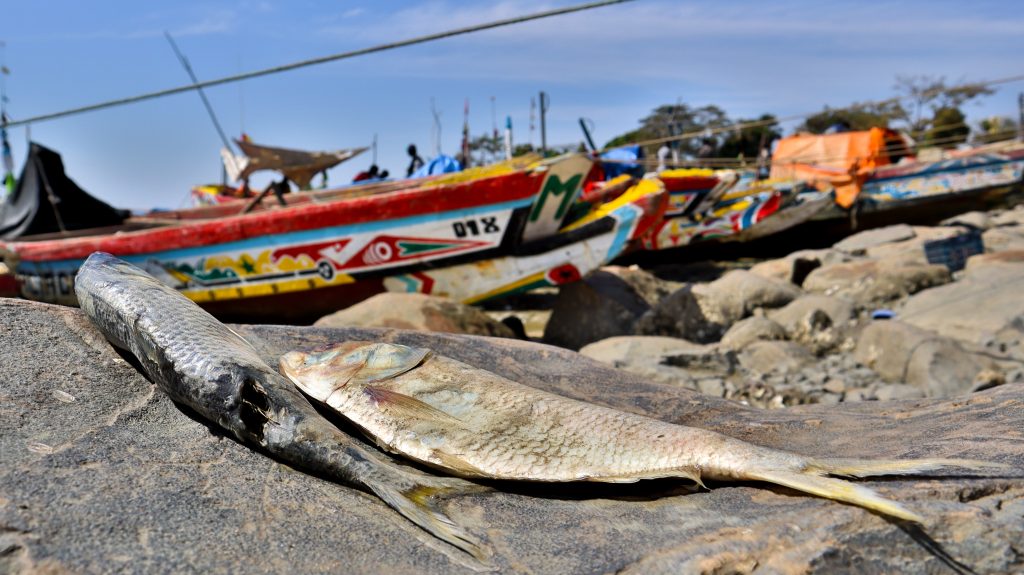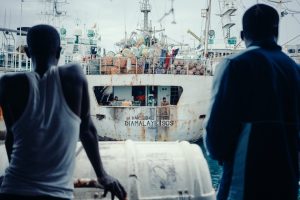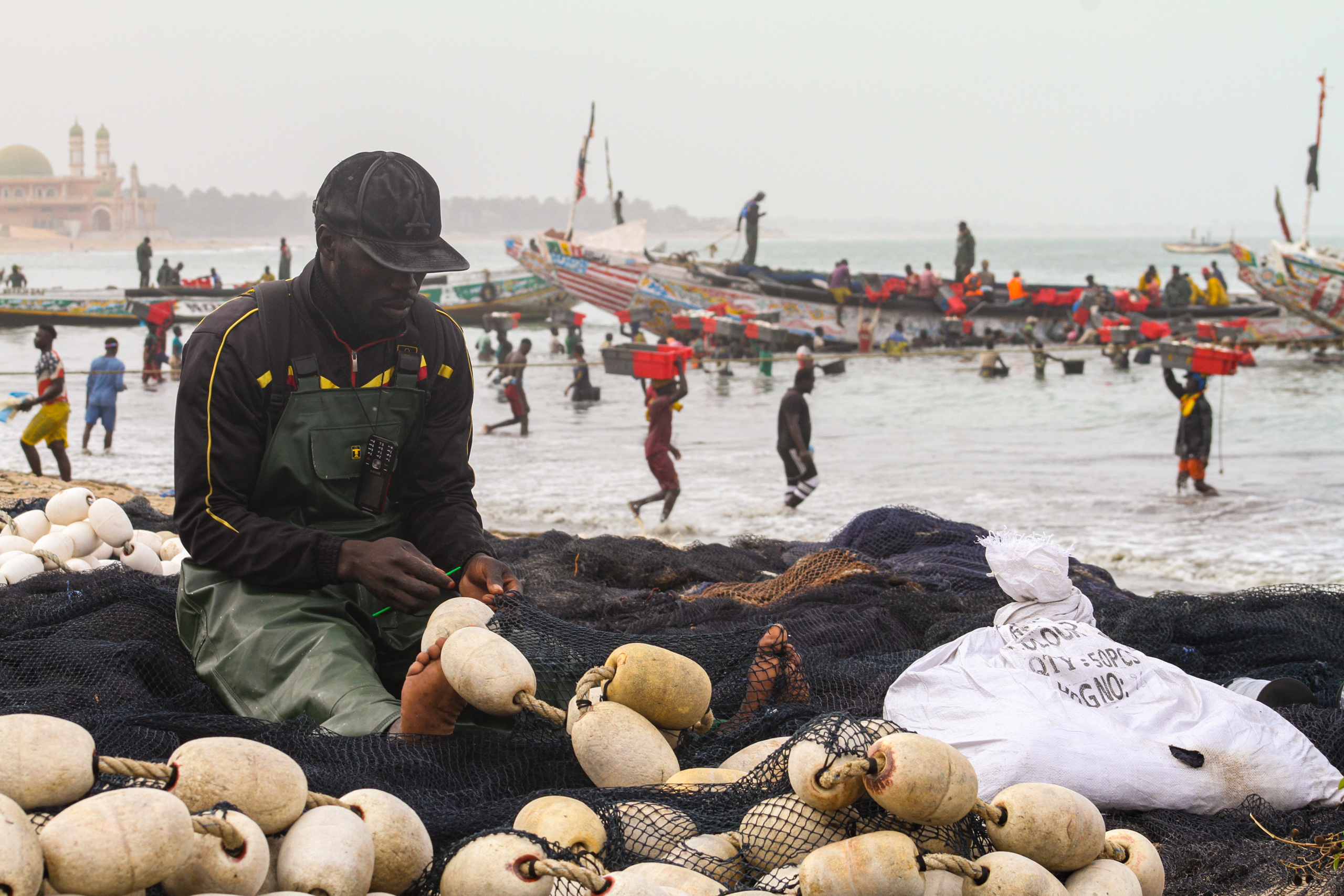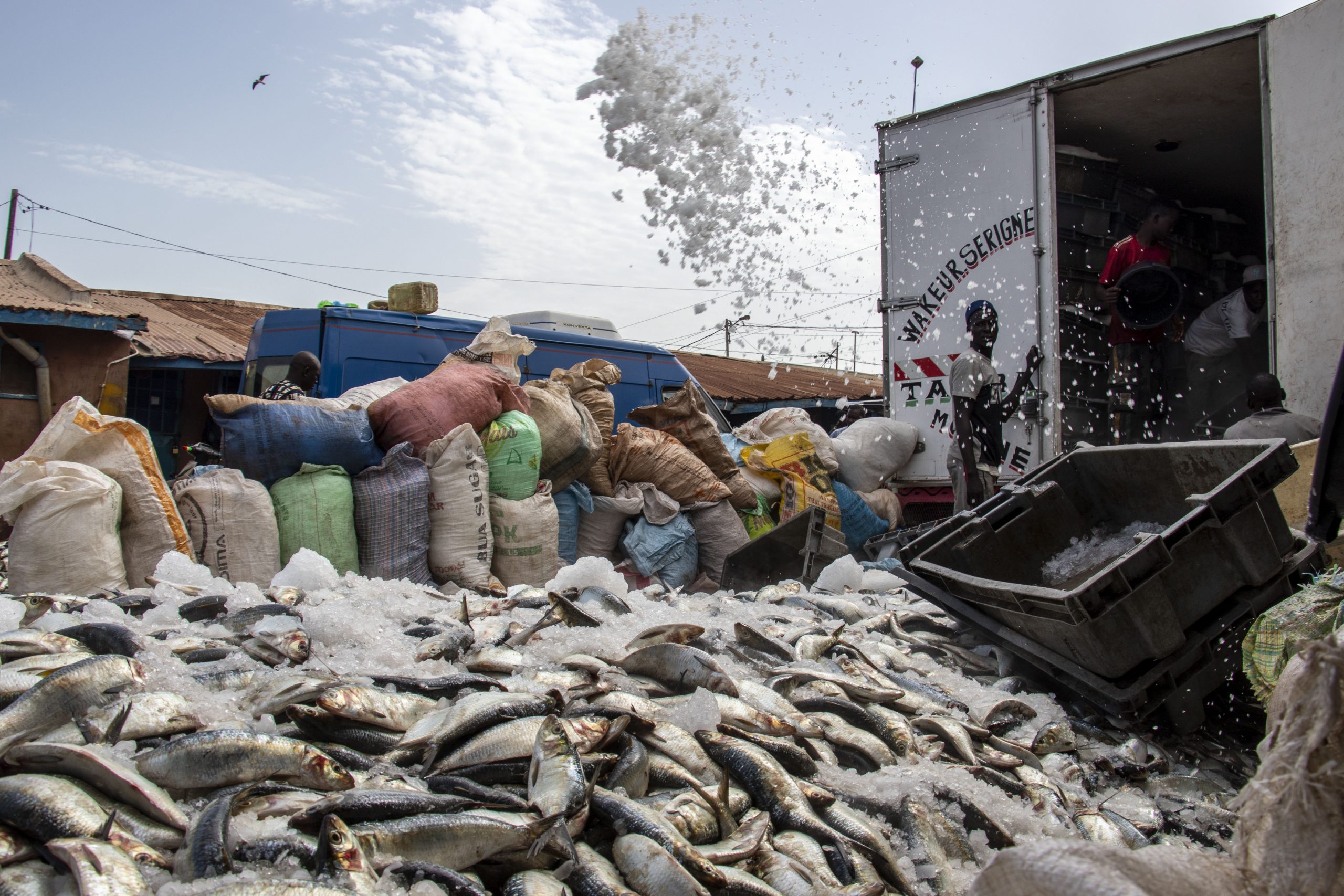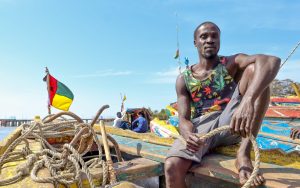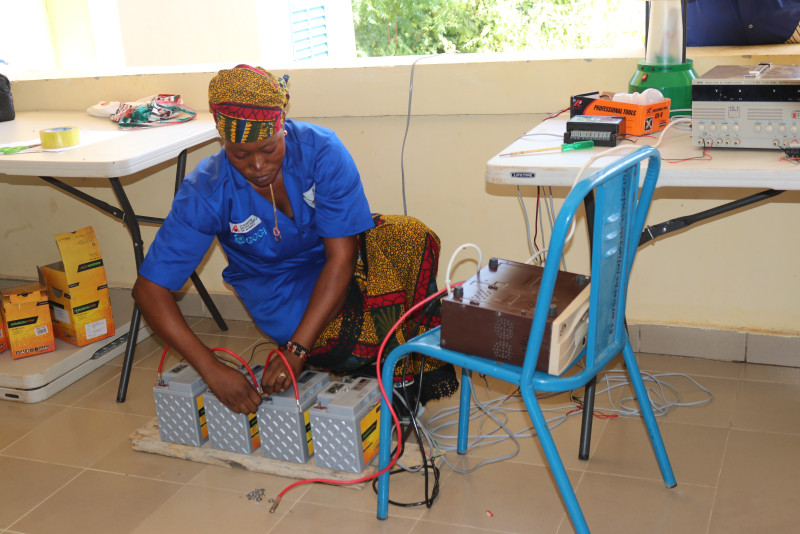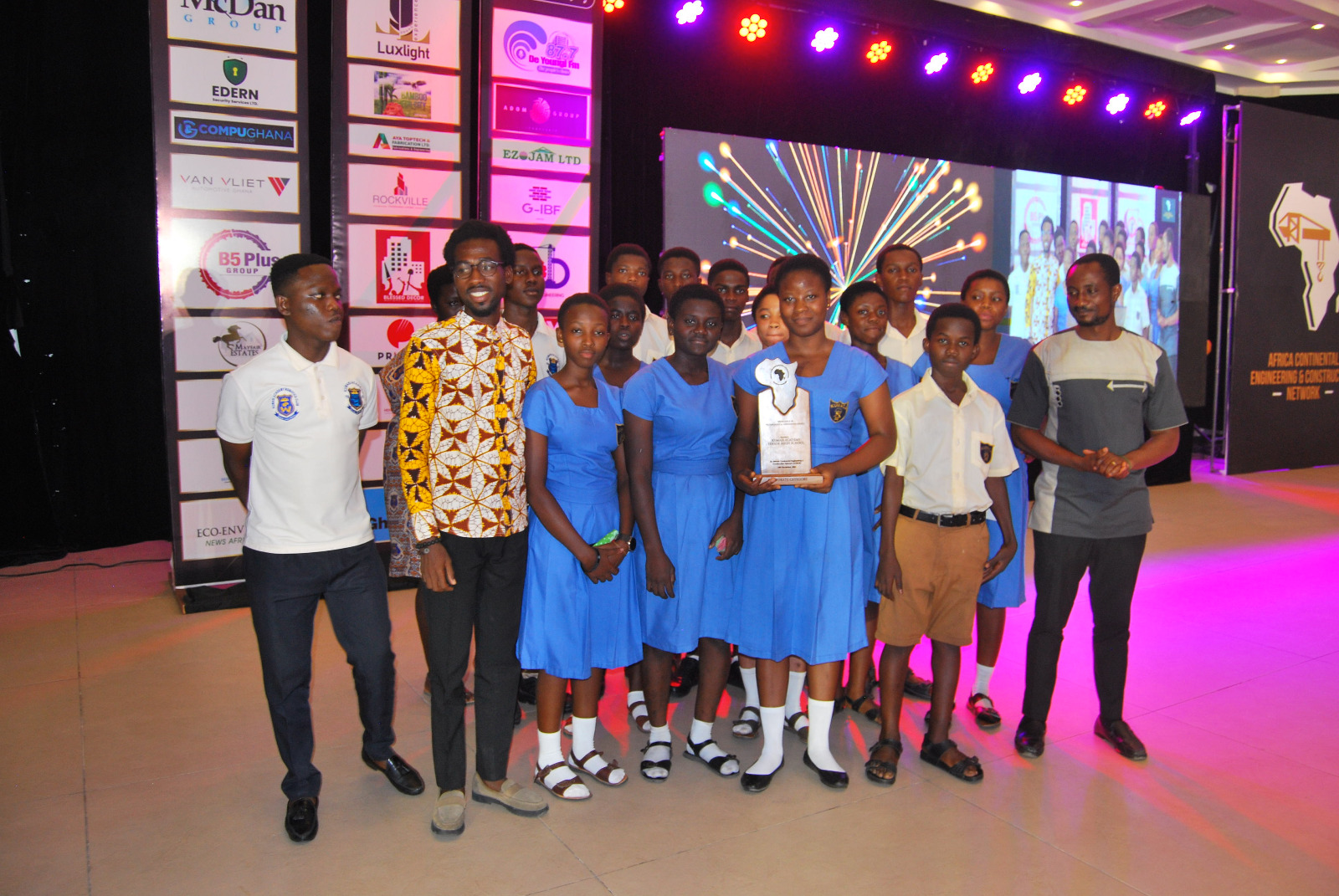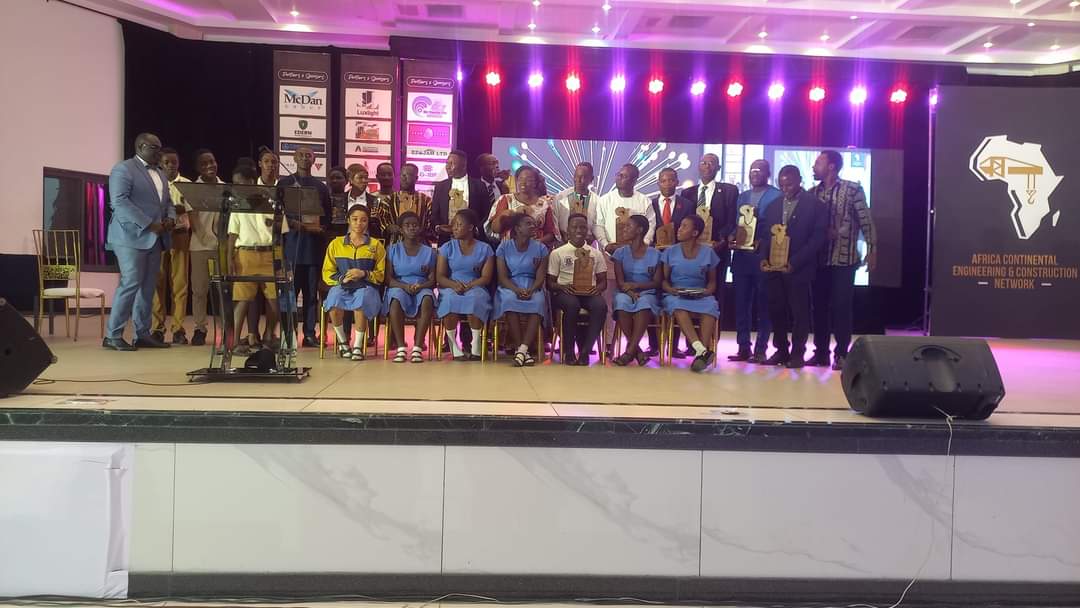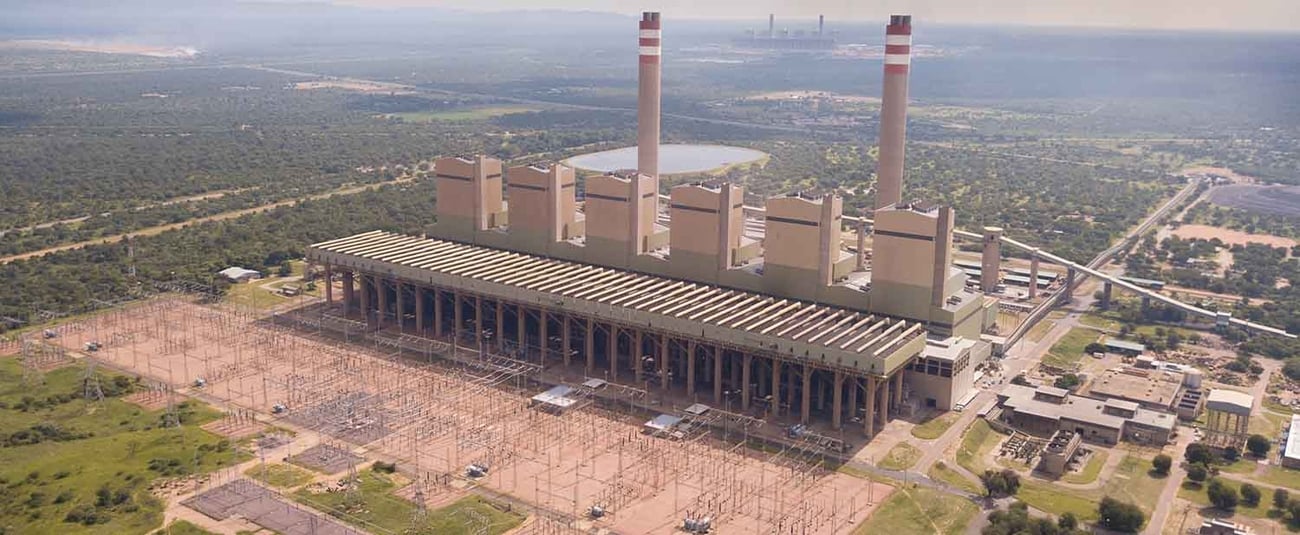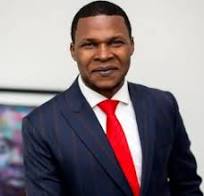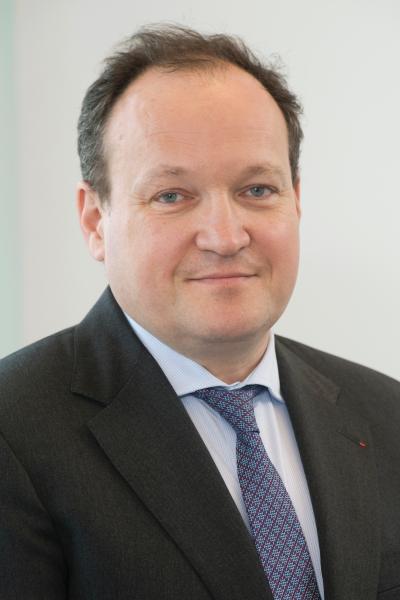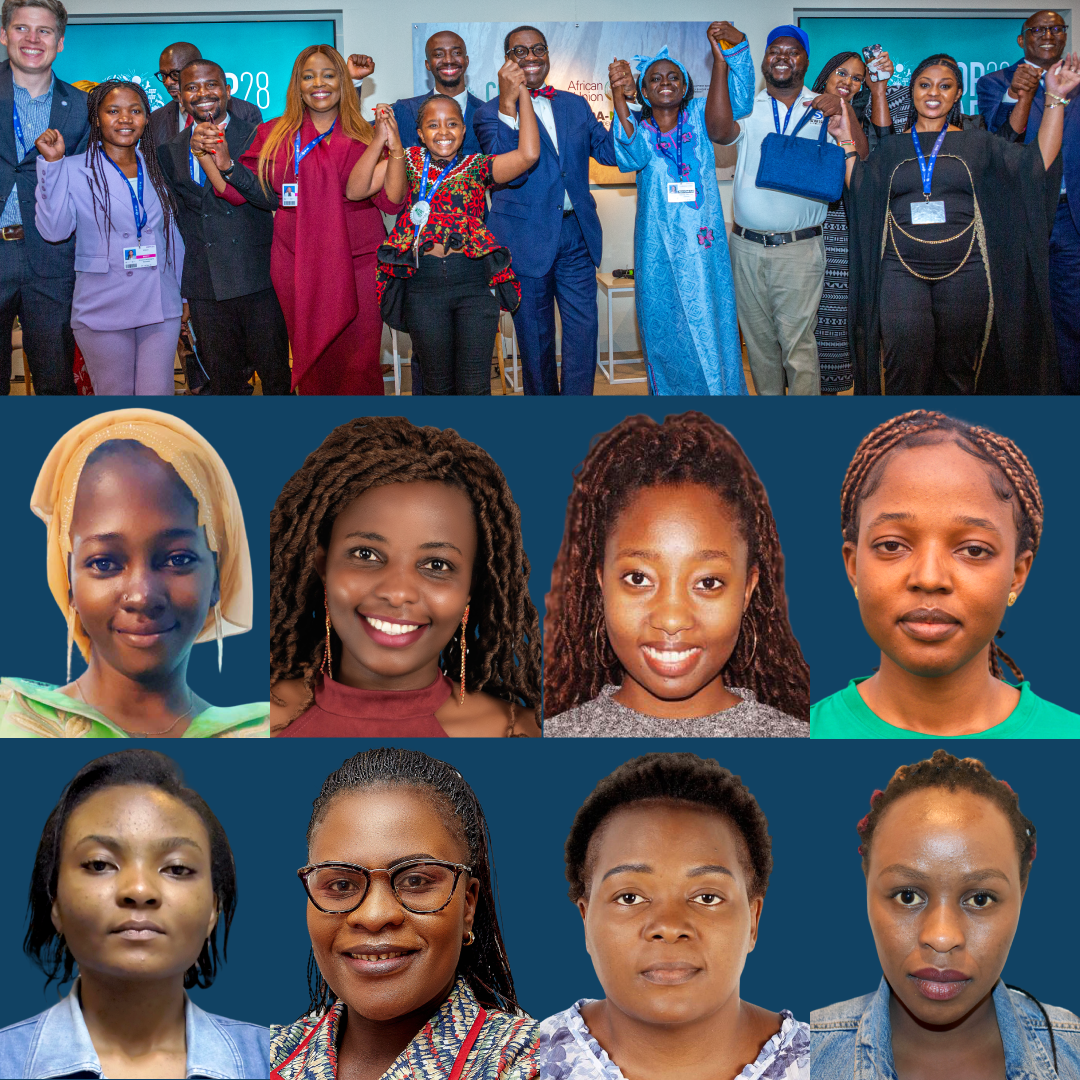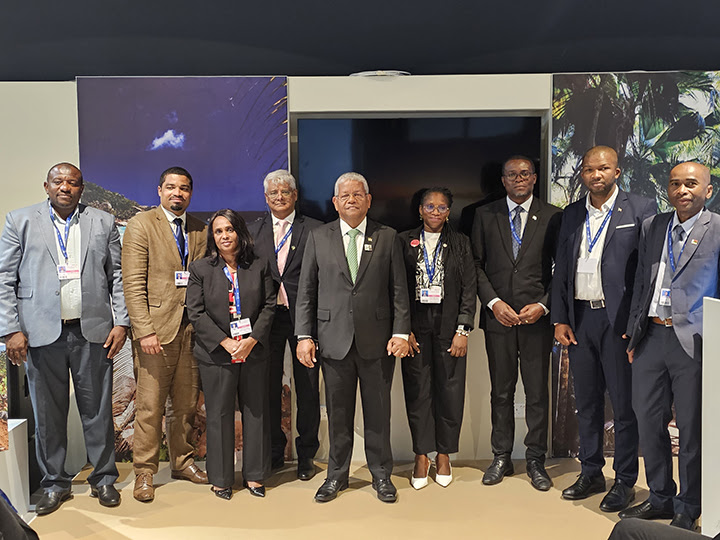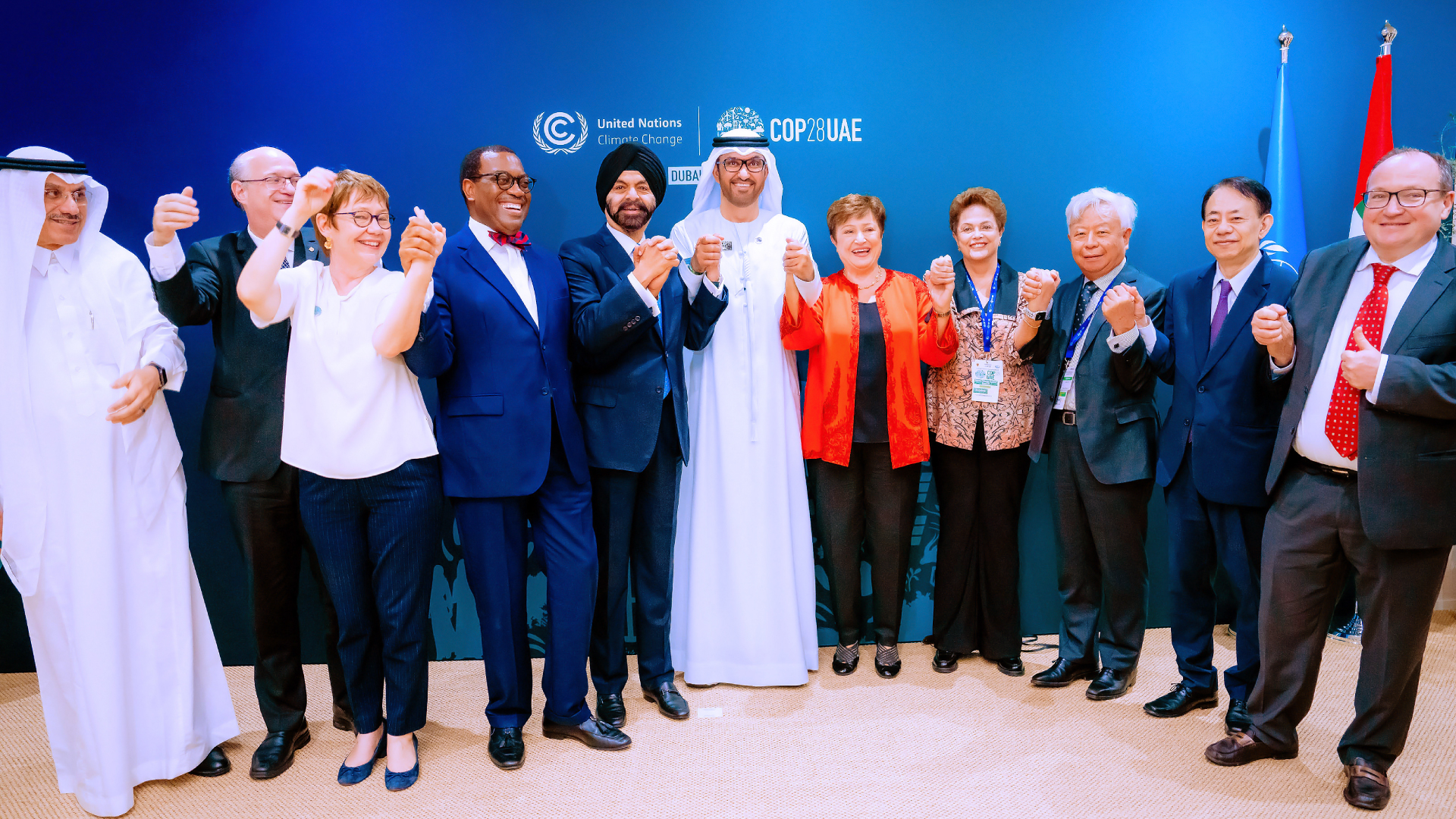This article was originally published on China Dialogue under the Creative Commons BY NC ND licence.
But a number of factors are depleting fish stocks, causing economic hardship and thus fuelling irregular migration to Europe. These include an influx of foreign trawlers in the region’s waters, lopsided fisheries agreements with foreign governments, weak laws and poor law enforcement.
Experts say these issues can be overcome. They believe West African countries should: work together as a bloc to ensure it can strike fairer fisheries deals; invest in monitoring and surveillance to deter illegal fishing; and implement policies that better protect the marine ecosystem on which fish stocks depend.
What is happening?
Between 2017 and 2023, more than 900,000 migrants arrived irregularly in Europe by sea and land through Italy, Spain, Greece, Malta and Cyprus, according to the UN’s International Organization for Migration (IOM). An estimated 26% of these came from West and Central Africa.
The journey is treacherous. Many who set out do not make it to Europe and are forced to return home. Others perish.
Between January and March this year, 532 people went missing as they attempted to cross the Atlantic Ocean and Mediterranean Sea, the IOM report notes, with disappearances mainly linked to drowning, dehydration or hypothermia.
In 2021, Nuha Njie tried to leave Gunjur, a coastal town in The Gambia, on a fishing boat bound for Morocco, from where he hoped to get to Europe. He is now back in Gunjur selling fish.
“Before my unsuccessful journey, I requested for rental shop near the landing site to sell fish,” he tells China Dialogue. “I struggled to get one.” Njie explains that such a facility would have created job opportunities for other youths, as shop assistants or suppliers of fish. Njie adds: “I am not aware of any government loans or assistance to access fishing tools such as boats, which would have encouraged us to stay here and work.”
Problems persist. Industrial trawlers will sometimes damage or destroy the fishing nets placed in the waters by local fishers, Njie explains. Though often accidental, this damage “affects the catches and subsequently, the market always runs out of [fish] stocks.” Often, this also leads to clashes between artisanal fishers and industrial trawlers.
Njie further accuses trawlers of violating regulations by fishing during a six-month “closed period” in the winter established by the government to allow fish to breed. He explains that Chinese fishmeal factories, often supplied by Senegalese boats, do sometimes operate during this period. “It is unfortunate that The Gambian government does not enforce the closed season as it should.”
The Gambia’s Fisheries Regulations, last updated in 2008, state that no trawlers can fish within 12 nautical miles of the coast. However, unlike Guinea Bissau’s and Senegal’s, they do not indicate what fine should be given for particular offences. Often, this translates to trawlers receiving minimal penalties, or even going scot-free by bribing government officials.
Despite the regulations in Senegal, Siaka Fai, a fisher from Missira village, in the country’s northern Fatick region, says fisheries agreements – and the industrial trawlers that come as a result – are compromising marine resources. “Our government has signed these fishing agreements and issued licences to other trawlers to operate on our waters… They have the bigger capacity, and we even compete with them around the areas we can access,” Fai notes. “As a result, small-scale fishers would [return] with very minimal catch, which is frustrating.”
Why are people leaving?
Illegal fishing has led to the loss of more than 300,000 artisanal – or traditional – fishing jobs in West Africa, according to the International Collective in Support of Fishworkers (ICSF). As a result, these people are forced to find work in another sector or to look abroad for it.
The Covid-19 pandemic has exacerbated conditions driving irregular migration. A UN report on extreme poverty in West Africa, published in January 2022, revealed that “nearly 25 million people are unable to meet their basic food needs, which is 34% higher than in 2020.”
There is historical precedent for this. In 2005 and 2006, fish stocks in Senegal collapsed, and close to 36,000 West Africans – mostly from Senegal and Mauritania – fled to the Canary Islands in an attempt to enter Europe, according to a report by the Global Initiative against Transnational Organised Crime.
Many of the irregular migrants from The Gambia and Senegal that China Dialogue spoke to – and their families – say that seeking greener pastures in Europe is their main motivation for leaving.
Like Njie, Wuyeh Sanyang left Gunjur in 2021, on a boat believed to be carrying more than 100 young Gambians, according to his family. He has not been heard from since.
“Before he left, he kept talking about the hardship the family is going through,” his mother Sariba Ceesay, 68, says of her son’s motivations. “All I do is pray for us to reunite.
“The saddest thing for me is I have no knowledge of whether he is alive or dead.”
Bad deals for West African nations
The fisheries sector has provided hope to Gambians over the years, especially to youths looking for work. But this hope has faded recently as regional governments signed new fishing agreements with industrial fishing operators.
Nine of out of ten fishing vessels legally operating in Gambian waters are foreign-owned, according to the Ministry of Fisheries and Water Resources’ website. There are currently five facilities for turning fish into fishmeal and fish oil that are licensed to operate in the small country.
In October 2018, The Gambia signed a six-year fisheries agreement with the European Union (EU) giving the bloc’s vessels the right to catch up to 3,300 tonnes of tuna and 750 tonnes of hake per year in Gambian waters. The EU paid 550,000 euros per year for the privilege.
Speaking to local press in 2019, environmental scientist Abdoukarim Sanneh said that even though the EU’s agreement with The Gambia also covers cooperation to fight illegal, unreported and unregulated (IUU) fishing, it still amounted to “trade injustice”. The agreement and fishing licences pose a major threat to local, artisanal fishers, he added.
It is a similar story in Senegal, where fisheries contribute to more than 3% of GDP, according to a Food and Agriculture Organisation (FAO) report. Most beneficiaries are artisanal fishers and processors, with 53,000 direct jobs, and over half a million that are reliant on fisheries. The report notes that overfishing, pollution and climate change pose the biggest threats to the sector’s job market.
The fisheries industry accounts for 10.2% of Senegal’s exports, and generated US$400 million in revenue in 2021, found a report jointly published by the US Department of Agriculture and the Global Agricultural Information Network in 2022.
Yet, like The Gambia, Senegal also has a fisheries agreement with the EU, signed in 2014, which allowed up to 38 EU boats to fish in Senegalese waters in return for a 8.69 million euro payment by the EU. The main agreement expired in 2019, but Senegal and the EU have since extended it with a new protocol. Other foreign-owned industrial trawlers also fish on Senegal’s waters.
‘Double whammy – no fish and no dollars!’
In a 2019 paper, researchers analysed the EU’s so-called sustainable fishing agreements and identified the damage the deals are causing to West African nations. Its authors followed up with an article noting that other countries, including China and Russia, are also part of the picture.
These patterns of exploitation exacerbate socio-economic inequalities, driving many people to despair and emigration
Aliou Ba, interim senior oceans campaign manager for Greenpeace Africa
Rashid Sumaila, a professor at the University of British Columbia who writes on sustainable fishing, says that West Africa gets a raw deal in these agreements, as its countries receive payments amounting to a small fraction of what their marine resources are worth. “The fishing communities in West Africa lose their fish without seeing any of the fees collected,” Suamila notes. “Thus, they end up with a double whammy – no fish and no dollars!”
For Aliou Ba, interim senior oceans campaign manager for Greenpeace Africa, the main threat to the ocean and communities in West Africa is the unsustainable exploitation of marine and terrestrial resources, often facilitated by unfair agreements, neo-colonial practices and IUU fishing.
“These patterns of exploitation exacerbate socio-economic inequalities, driving many people to despair and emigration,” Ba says. “And Europe’s [border policies] make this situation terribly dangerous.”
West African nations lose an estimated $9.4 billion per year due to IUU fishing, according to a 2022 report by the Financial Transparency Coalition.
What are the solutions?
Ba highlights that “too many” young Africans have disappeared while emigrating in search of better lives. It is “high time for national authorities to invest in monitoring and surveillance of the oceans, and develop sustainable development policies capable of creating hope and lasting jobs,” he says.
To incentivise businesses in the sector to spur local employment, “fisheries need massive investment, including subsidies to help local fishers with boats and storage facilities,” says Gambian migration specialist Bubacarr Singhateh.
He adds there is a need for policies that protect the marine ecosystem through sustainable fishing and guarantee that perpetrators of fisheries crimes – such as fishing within a protected area and the illegal use of large nets – pay damages, to ensure proper restitution for those affected.
West African governments have begun to develop robust fisheries policies intended to ensure a future for local fishers.
The Gambia’s most recent fisheries and aquaculture policy, published in 2018, sets as a major objective the sustainable development and management of industrial fisheries with the “full participation” of Gambians. It also seeks to develop Gambians’ capacities so they fill at least 30% of all skilled labour positions onboard fishing vessels, and to create jobs from “onshore value-addition activities”, which includes fish smoking and other kinds of processing.
Senegal, too, has various progressive policies, including its recent Agreement on Port State Measures, facilitated by FAO, which is the first binding international agreement to specifically target IUU fishing.
However, for these policies to be truly successful, governments must stop signing agreements that threaten to jeopardise fish stocks in the region, such as the EU deal, which contributes to overfishing and overexploitation of local fish species. They must also clamp down on Chinese trawlers operating in The Gambia, Senegal, and Guinea Bissau, which currently do so to an extent that compromises sustainable fishing principles.
This year, an Amnesty International report detailed the devastating impact of overfishing on Sanyang, a coastal village in The Gambia, in which it identified foreign-owned industrial trawlers and fishmeal factories as particularly damaging in how they dissolve local livelihoods, create food insecurity and perpetrate human rights abuses.
In an article accompanying the report, Samira Daoud, Amnesty’s regional director for West and Central Africa, said: “The Gambian authorities must urgently take all necessary steps to hold them to account and protect the human rights of affected communities, including their economic and social rights.”
When West African nations enter into fishing deals with other countries, Sumaila suggests that, in order to ensure they are fair, “they need to work collaboratively as a unit, just like the Pacific Island States do. This will increase the region’s bargaining power, making it receive a fair share of the value of resources.”
